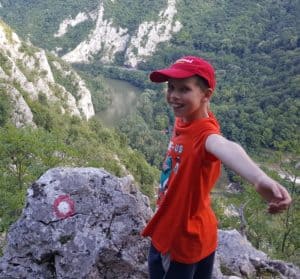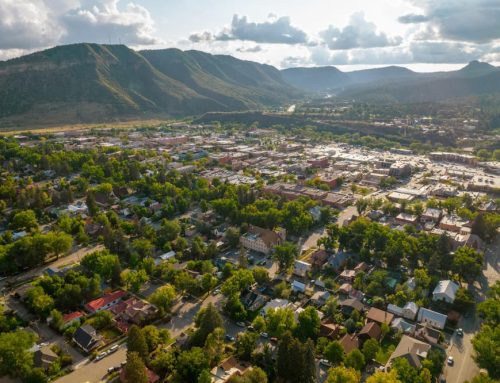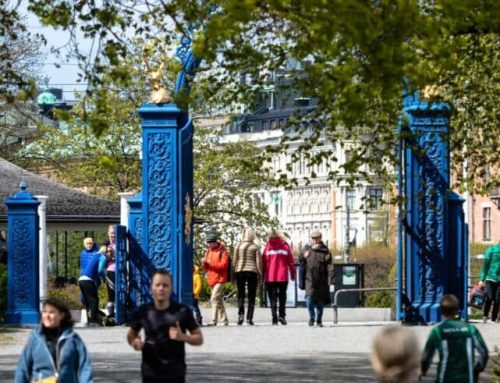Destination Stewardship Report – Spring 2021 (Volume 1, Issue 4)
This post is from the Destination Stewardship Report (Spring 2021, Volume 1, Issue 4), an e-quarterly publication that provides practical information and insights useful to anyone whose work or interests involve improving destination stewardship in a post-pandemic world.
A massive webinar to mark last month’s “International Day of Happiness” yielded some serious pointers for destinations seeking a broader measure of successful tourism recovery than counting revenue and arrivals.“Covid has shown us we can’t be happy on an unhappy planet” was one message for destinations around the world, report DSC associates Marta Mills and Chi Lo – the point being that local contentment should be part of the tourism equation: “A good place to live is a good place to visit.”
The Happiness Agenda – Happy People Mean Happy Destinations
In celebration of the International Day of Happiness, on Saturday 20th March 2021, Planet Happiness, the World Tourism Network, International Institute for Peace through Tourism, and SUNx convened a global webinar. With over 400 registrants, 150 live participants for nearly 3.5 hours, and over 13,000 people joining at various times through social media, it was a success and left many of the participants inspired and, one hopes, happy. You can watch the recording here: https://www.youtube.com/watch?v=se4JclvTnZM
Here are some of the topics discussed during the webinar, summarising what the Happiness Agenda is all about.
Residents First

Happiness in action. Photo: Marta Mills
The consensus is clear – that “a good place to live is a good place to visit”; that tourism sustainability conversations must include happiness and wellbeing at the outset, and, importantly, the happiness of the residents comes first, and then that of the visitors.
“Tourism is about residents,” said Taleb Rifai, the former UNWTO Secretary General, pointing out the importance of promoting tourism to the destination’s residents, a concept that still does not exist in many developing countries. This is important now in the Covid and post-Covid reality with domestic tourism on the rise.
Key Takeaways from the webinar:
- “Covid has shown us we can’t be happy on an unhappy planet.”
- “A good place to live is a good place to visit.” For a successful destination local people should enjoy their own place.
- A change in systems is needed whereby tourism provides meaning to both residents and tourists to enhance the quality of life and enable a destination to flourish.
- The global policy agenda should include happiness and wellbeing as an indicator of growth “beyond GDP.”
- A clear narrative of why this is important is needed to convince decision makers to take up this agenda.
Destinations can do better by not focusing solely on economic policy, but by also paying attention to its societies. Explicitly showing that they are concerned about citizen happiness helps people trust governments to do the right thing. Jon Hall, Policy Specialist, National Human Development Reports for the UNDP, said it eloquently: “Policies that promote happiness are often much more gentle on the environment than those that promote economic growth.” He added that governments should pursue the greatest happiness for the greatest number of people as an overarching goal.
Measuring Tourism Success
Staying true to the “Beyond GDP” movement, there was an overwhelming consensus that measurements for tourism success should not be based on IVAs (international visitor arrivals) or tourism receipts. Measuring the happiness of host populations as well as guests is a good idea. If happy, hosts are more welcoming, willing to share their lives, and give excellent service. Happy guests are the best PR. As some of the speakers pointed out, the Happiness Policy Handbook should be on the desk of every local politician.
The Happiness Index survey, used by Planet Happiness (a tourism and big data project) is available on line in 25 languages and counting. An OECD-recognised best-practice measure of well-being, it suggests:
- Spark conversations between families, friends, and work colleagues about the strengths and deficiencies of their scores;
- Introduce survey-takers to a definition of well-being and how to measure it;
- Provide traction for grass-roots understanding of, and engagement with, the tourism and destination well-being agenda.

Geoffrey Lipman of SUNx spoke on the need for climate-friendly travel, given that continued climate change will make for rather considerable unhappiness around the world.
From Sustainability to Regeneration
We should be moving beyond sustainable tourism (meant as minimising the negative and maximising the positive social, economic, and environmental impacts of tourism) and aiming for regenerative tourism to see how we can creatively improve the condition of a destination, through systems change. Regeneration is about creating the conditions for the destination to renew itself, to transcend into new forms, and to flourish, as mentioned by Elke Dens from Visit Flanders and by Anna Pollock, Conscious Travel.
The Flanders approach, for example, recognises flourishing destinations as ones where tourism nurtures the locale and sense of place, and where meaningful connections are made between visitor and host, thereby improving the quality of life for both. Tourism, therefore, should be about building local pride of place, facilitating intercultural peace and understanding, and promoting what is unique to a destination while enhancing residents’ wellbeing. If destinations can do this, they can thrive and flourish.
Going Forward – Calls for Action
Participants called for systems change, for further research, and for more publications on the intersection of sustainability in tourism with destination competitiveness in terms of community quality of life. Larry Dwyer, Professor of Travel and Tourism Economics, University of New South Wales, said that “Tourism researchers need to address gaps in tourism literature as it pertains to happiness, wellbeing, and quality of life in order to make a genuine contribution to SDGs” – the U.N.’s Sustainable Development Goals.
As iterated by Dr. Paul Rogers, measuring the happiness of host populations (as well as guests) will start a conversation amongst stakeholders on how they would like to see their own destination develop and flourish. For this change to happen, he said that we need a clear narrative to interest and encourage government decision makers to take up the Happiness/Well-being agenda. This will advance us beyond measuring destination success solely in terms of visitor arrivals and contribution to GDP.
Short video illustrating what Planet Happiness does
Take the Happiness Index Survey
About DSR Contributors
Volunteer contributors are welcome to the Destination Stewardship Report. Contact us with your proposals and ideas.




